#neurotypicals communicate clearly challenge
Explore tagged Tumblr posts
Text
Am I the only one that feels like NTs HATE saying 'I don't know.'
You will not believe the amount of times I'll ask a basic objective question about a situation and they'll give me an answer, only for later the answer to be completely wrong. And then when I ask them why they would give me wrong information - they say 'I just guessed.'
I didn't ask you for your guess. I asked for the information. If you didn't have the information don't just GUESS. Say 'I don't know.'
I feel like NT don't realize that WRONG information is worse than no information.
If I want to know when an event will end and you say '5pm' - I'm going to be mentally prepared for 5pm. And if it DOESN'T end then, not only will I be out of energy, but I'll be irritated and confused because I'm in an unfamiliar situation with NO INFORMATION
Had you just told me 'I don't know what time it ends' instead of GUESSING 5, then I would've prepared for the worse. But now I have to literally rearrange everything in my head and talk myself down from meltdown cause I was given inaccurate information and also I thought I was going home.
But they act instead like saying I don't know is a moral failure.
My father used to yell at me all the time to not say 'I don't know.'
He'd always demand I figure it out and come up with SOMETHING no matter how uninformed or vague and that's how you have NTs walking around feeling like it's a crime to admit they simply don't know something
and instead they'll just shamble something together and hope that's good enough regardless of whether in the information is actually helpful or correct.
IT'S SO ANNOYING. JUST SAY YOU DON'T KNOW.
Stop guessing and giving me WRONG information because it only makes the situation worse and more confusing. Say you don't KNOW. It's FINE.
#ro rants#neurotypicals communicate clearly challenge#today on: actually NT are the ones with empty and illogical communication patterns#I refuse to believe I'M the disordered one when they're the ones acting on no logic whatsoever#stop trying to protect your ego and just Be Normal and tell me what I need to know#'Autistics are bad at communication cause they're too blunt and rude-'#or maybe.. you just have no idea how to speak clearly#neurodivergent#actually autistic#autism#audhd#neurodivergency#neurodiversity#actually audhd#actually autism#actually adhd#autistic
536 notes
·
View notes
Text
Why I think Eddie Diaz is autistic !
(As an autistic individual)
- Struggle with emotional expression:
He often struggles to express emotions, particularly in his relationship with women, (look at the way he acted with Sharon, Ana and Marisol, never communicating clearly, or doing it VERY straightforwardly (-> “you should go”)
He struggle with articulating his feelings, to name his emotions and process them (seemingly alexithymia) and he close off a lot, even with his therapist !
- Literal Thinking:
He tend to interpret language literally, (interactions with his colleagues and fast problem-solving, keeping a cool head under very stressful situations, the way he react to jokes, the way he doesn’t believe and ‘judge’ the way they fear superstitions, only believing what he can prove)
It seems to me like he experiences challenges with understanding figurative language or sarcasm and only believe what is proven, he’s very closed off about the idea of superstition which can be seen in some autistic people who struggle with theses concept
And he can be really straightforward (see the “you should go home Ana” or the “last time he wore that was at his mom’s funeral”) -> stating facts straightforwardly without processing it first and without realizing how stating it like that can be ‘awkward’ to others
- Meltdowns and Coping Mechanisms:
He experiences moments of intense frustration and resorts to unhealthy coping mechanisms (-> fights and destroying his room, hurting himself and other in the process (as in a lot of autistic meltdown and the way a lot of us turn to violent coping mechanisms to fight against sensory overload and the complexity of understanding our own emotions -> resorting to violence)
He parallels experiences of sensory overload and regulation, also his panic attacks and the way he avoid addressing his trauma and feelings by brushing it off and ignoring his own mental health, struggling to understand his own feelings about what he’s experiencing
- Difficulty with Trauma and Normalcy:
His reluctance to address trauma and persistent efforts to appear "normal."
It reflects challenges faced by autistic ppl in processing traumatic experiences and blending in with neurotypical society (force conformism and such)
There’s something about the way he and his father approach emotions, keeping it hidden and close off, that resonates a lot with my own experiences as someone autistic raised by someone who’s (probably) autistic too ‼️
+ the way he quickly connect with Buck exemplifies the ‘neurodivergent link’ : ADHD and autism solidarity is a reality ! Neurodivergent people tend to feel more secure, comfortable and friendly with other neurodivergent individuals!!
He basically just give such a autistic energy, like- I really connect with his struggle and the way he interact with the world around him, but please tell me what YOU think 🫶‼️
To have a better view of this part of him we would need more of his pov, sadly we rarely get it so I’m basing this of what I remember, what I personally see in him, what I connected with :’D
(Keep in mind that I probably projecting and it’s just an headcanon, not hate please <3 constructive criticism is welcome tho !!)
Credits it to @thisonemaniac that helped me make this post :D !! We talked about it a bit, I highlighted in orange what he remind me off ‼️
(Since you asked me about it you might want to read this :D !! I explained it better I think xD @lesbianphoebespengler )
#autistic eddie diaz#autism#eddie diaz#911#911 abc#911 theories#911 headcanons#buddie#< target audience#+ adhd x autism is literally the best couple combo isn’t it ? 😔🫶#actually autistic#projecting my autism on another of my comfort character#no one can stop me#no but fr#im serious about this#I always am tbh#I feel like I forgot something tho#tell me what you think ‼️#Wally’s post !
99 notes
·
View notes
Text
What If Neurotypical Was the Condition?
We spend so much time explaining ourselves.
Defending why we think the way we do.
Trying to prove that our brains - our entire wiring isn’t a flaw.
And all of that happens because someone, somewhere, decided that this was the “norm”:
✅ Linear thinking
✅ Predictable attention
✅ Comfort with vague social rules
✅ Emotional restraint
✅ No flapping, no stimming, no interrupting
✅ Sit still. Smile just enough. Say things the right way.
But what if that wasn’t the baseline?
What if they were the difference… and it had just never been written down that way?
History is written by the victors…
What if we flipped the diagnostic lens?
Not as a joke, but to show how fragile the definition of “normal” really is.
So… here it is.
If neurodivergent people were the default, and neurotypicality was the condition - what would the DSM say?
DSM Entry: Neurotypical Personality Condition (NPC)
Category: Social-Cognitive Regulatory Disorders
First Proposed: By the neurodivergent community, as a reframing of diagnostic bias.
⸻
Diagnostic Criteria
A pervasive pattern of conformity to dominant social norms, present by early adulthood, and observable in a variety of contexts, as evidenced by at least five of the following:
1. Discomfort with deviation from expected behaviours or routines, particularly in others:
- Feels uncomfortable when other people don’t follow expected behaviour or routines.
2. Dependence on implicit social rules:
- Follows “unspoken rules” (like being polite, smiling the right amount, or using the right tone) instead of asking directly or clearly.
3. Discomfort or distress when witnessing atypical expressions:
- Gets thrown-off or uneasy when people act differently, like stimming, using flat voice, talking too much or too little, or being intense can cause distress.
4. Preference for maintaining group cohesion over acknowledging individual needs or boundaries:
- Tries to keep everyone comfortable or fitting in, even if it means ignoring someone’s actual needs.
5. High sensitivity to perceived awkwardness or noncompliance, often resulting in social correction:
- Gets awkward or anxious when things feel “socially wrong” and tries to fix it.
6. Assumes personal interpretation of situations reflects universal logic:
- Believes their way of seeing or doing things is just “normal” or “common sense.”
7. Difficulty adapting to nonlinear, tangential, or atypical communication styles:
- Has trouble following conversations that jump around or aren’t in a straight line.
8. Tendency to interpret lack of eye contact, delayed response, or indirect speech as rudeness or dishonesty:
- Thinks things like avoiding eye contact or taking time to reply must mean someone is rude, upset, or hiding something.
9. Strong reliance on majority consensus or external validation when forming opinions, identities, or social stances:
- Likes to go with what most people think, wear, or believe, especially in groups.
10. May default to hierarchical structures or authority roles, even in the presence of harm or contradiction:
- Trusts authority figures or leaders by default, even when something feels off.
Things it can be confused with
• Might seem “well-adjusted” or “socially skilled” - but that’s usually because the world is built for these behaviours
• Not the same as being kind, emotionally aware, or open-minded - those are separate traits
How common is it?
Very common - but rarely called out. It’s so “normalised” that it often goes unnoticed. In fact, many people with NPC help set the rules that others are expected to follow.
⸻
What happens over time?
Usually stays the same unless challenged.
But when someone with NPC connects with neurodivergent people or learns different ways of thinking, they can grow in flexibility, empathy, and awareness.
Of course, this isn’t a real diagnosis.
Neurotypicality isn’t a disorder, just like neurodivergence isn’t a flaw.
This post is just a thought experiment. A lens flip. A way to show how the language of diagnosis can feel when it’s pointed at the norm instead of the difference.
It’s not about blame. It’s about perspective. And sometimes, flipping the script is the only way to see the story clearly.
Thanks for staying curious with me 🫶🏻
#neurodivergent#adhd brain#adhd inattentive#autistic adult#autistic community#actually adhd#neurodiverse stuff#adhd post#adhd#autism#living with adhd#adhd writer#adhd life#adult adhd#autistic experiences#actually autistic#diagnostics#neurotypes#flipped
17 notes
·
View notes
Text
Some of the many things that truly suck about being a high masking autistic person with a high IQ is that I'm never "autistic enough" to be "truly autistic," never "disabled enough" to be "truly disabled," that there are no accommodations I "actually need" because I do well enough in school so why would I need any help whatsoever right? (Wrong, very very wrong.)
And yet somehow at the same time, despite how hard I try, I'm never "normal enough," I'm always "weird" and "odd" and it doesn't matter how much time and energy I put into trying to learn how neurotypicals communicate and social cues and tone and facial expressions and everything else because it never works.
But somehow, despite the way everyone thinks I'm weird, no one believes me when I tell them I'm autistic. It's always "no, I don't think you are," or "but you don't look autistic," or "you can't be autistic," or "but you're so normal," or "everyone's a little autistic," or any of the other ableist things people always spew out.
You can't possibly know if I'm autistic or not if you don't go to my brain. You can't. You just can't. What is autism "supposed" to look like to you? A rich white five year old boy who's your nephew or something that has a special interest on trains? (And autistic people who fit that exact description definitely do exist and are just as valid) Because an afab LGBTQ+ Asian teenager "can't possibly" be autistic. I appear "normal" (despite the fact that my entire life you've been telling me the opposite) to you because I've learned how to mask from a really young age because people like you taught me that everything about me was inherently wrong. That everything about the way I actually am is something to be ashamed of, something to lock away in a vault behind bars out of sight, something no one can ever know because who would like me if they did? Because now that you've said that, you can be sure that I'm not going to feel safe enough around you to even begin to try to unmask. Not everyone is "a little bit autistic" you can't be "a little bit autistic" you are or you're not. Not everyone is autistic. If everyone was autistic it wouldn't be a diagnosis, if everyone was autistic then the world would be a more accepting place for autistic people (not to say ableist people won't still exist).
I know this is largely a "complain-y" post that doesn't really touch that much on the challenges that autism itself can bring and mainly just on the ableist people that I've had the displeasure of interacting with and this definitely doesn't touch on everything (not in the slightest), but on the other hand, why do people find it so weird that autistic people (and all people with disabilities) can and do (although not everyone does and that's completely ok too) feel proud to be autistic? Even though I hate some parts of being autistic, even though it's hard a lot of the time, why can't I be happy too? Why must I always have to be suffering in your eyes? What if I love obsessing over my special interests, what if I love stimming and the way it makes me feel, what if I love the way my brain works sometimes? What if even the things I hate I sometimes love and the things I love I also sometimes hate? And what if everything (whether I love it or hate it or both) is all a part of me? And everything is a part of me that I can't change or be "me" without, and why can't I be proud that despite the way some things are really really hard I'm still trying? That I'm still doing everything I can. Why can't I be proud that I'm a part of a community that has done incredible things and that has incredible people? I don't understand.
It's always either "you can't possibly be autistic because you're so smart" or "you can't possibly be smart because you're autistic" or both at the same time because for some reason that makes sense to people. It's either "let me infantilize you because you clearly can't do anything" or "let me except way too damn much from you because you must know everything" or both at the same time and none of it makes sense. Why can't I have both strengths and weaknesses? Why can't I both struggle and succeed? It doesn't make sense. None of this makes sense.
I'm a person. I'm an autistic person. Why is this so hard for neurotypicals to understand?
I just started ranting about the things at the top of my mind which then kind of spiraled into.... whatever this ended up being.
#I still have so much to rant about but this is already rather long and whatever so I'm going to stop it here#just as a closing remark all autistic people are 100% completely and entirely valid and deserving of acceptance#also ableist people suck#and as stated before this can't possibly touch on everything ableist people do#just started ranting about the things at the top of my mind which then kind of spiraled into.... whatever this ended up being#autism#high masking autism#actually autistic#autism rant#neurodivergent
17 notes
·
View notes
Text
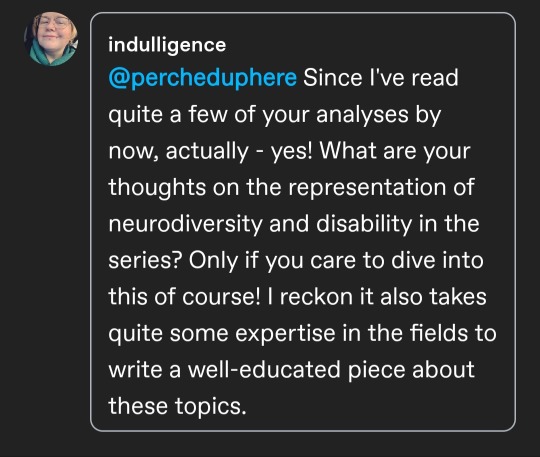
LET'S TALK ABOUT NEURODIVERSE AND DIFFERENTLY-ABLED/PEOPLE WITH DISABILITIES REPRESENTATION IN THE LOKI SERIES
Thank you so much for your patience and your amazing ask, @indulligence! Special thank you, as well, to all the gif artists who made this meta possible.
I've been champing at the bit to get to this one, and I finally made it!
As a disclaimer, I am not a doctor, and I recognize we should take care in pseudo-diagnosing fictional characters as we don't want to perpetuate stereotypes of our neurodiverse and differently abled/people with disabilities communities. Having said that, if interpreting a character as being neurodiverse and/or differently abled/having a disability brings you comfort and joy, you should certainly do so! Canon is a sandbox. Fictional worlds and characters are meant to be engaged with for your pleasure.
I do cite a few medical graphic and their sources below. If any of those sources are problematic in any way, please let me know and I can switch out the graphic for one from a better source.
LOKI - ADHD [?]
At first glance, Loki's characterization in Thor 1, Thor 2, and Ragnarok don't seem to present him as having challenges with executive function. He appears to be able to focus and sustain focus, able to organize, and able to sustain effort and process. Loki also has exceptional memory.
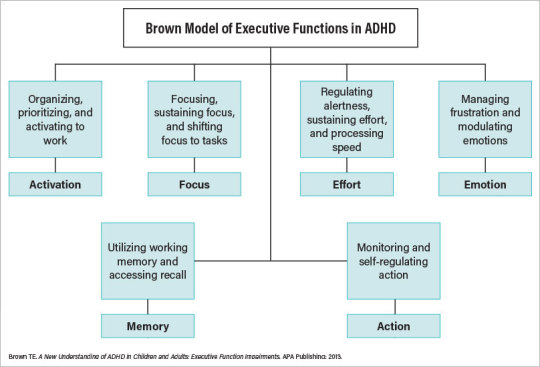
[source]
As for mood, many mood symptoms of ADHD overlap with depression, the latter of which Loki clearly has. Nevertheless, it should be noted that ADHD and depression are often comorbid. He could have both.
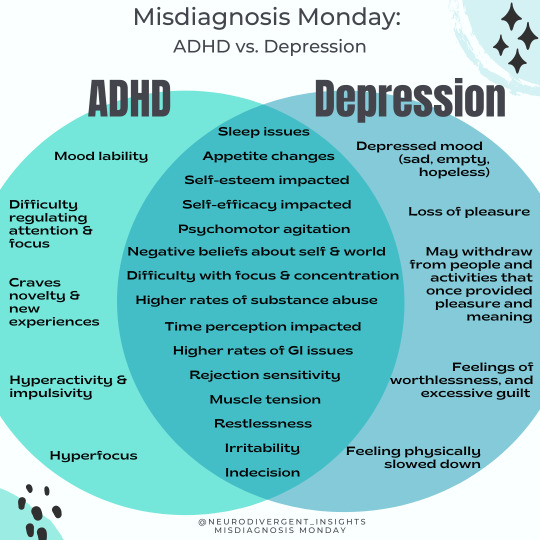
[source]
While memory and effort are not concerns, Loki has consistently shown challenges with impulse control, managing frustration, and modulating emotion. A number of his most consequential choices (i.e. inadvertently directing Malekith to his mother, chasing after Sylvie, etc.) are influenced by his emotional state rather than premeditation. This may suggest that if Loki has ADHD, he leans toward Type 2: Impulsive/Hyperactive:
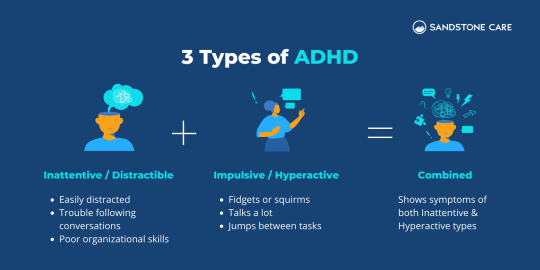
[source]
His characterization in the Loki series changes somewhat to include more hyperactivity and swings between hyperfocus and difficulty regulating attention and focus. Loki gesticulates, fidgets, and moves a lot more in the series than the movies. He also talks much more quickly when excited.
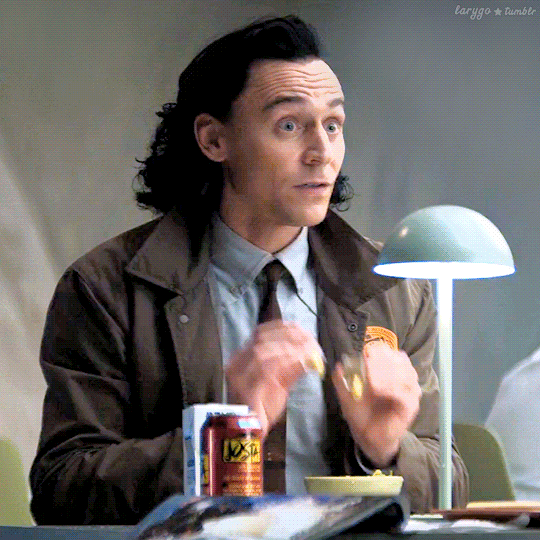
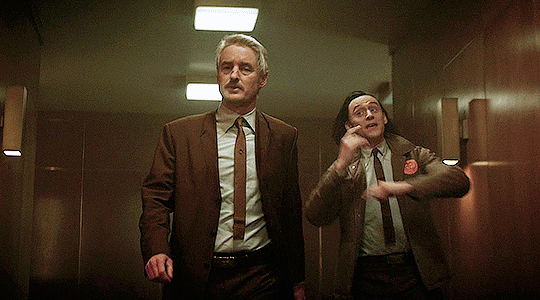
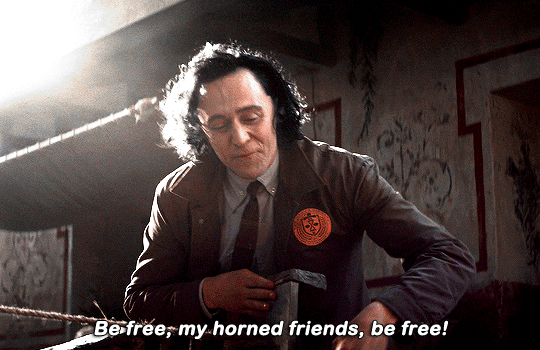
Do I think these changes were intentional? I honestly have no idea. Whatever the case, I think it's lovely that the Loki who becomes the most powerful hero in the MCU is also the version that demonstrates a higher likelihood of being diagnosed with ADHD.
MOBIUS - NEUROTYPICAL / HIGHLY SENSITIVE PERSON (HSP) [?]
I think Mobius, for the most part, is neurotypical. Even with Loki being his special interest/hyperfixation, he doesn't exhibit the other symptom criteria to meet a Level 1 Autism diagnosis, an Obsessive Compulsive Disorder diagnosis, or an Obsessive Compulsive Personality Disorder diagnosis.
He may, however, be a Highly Sensitive Person (HSP).
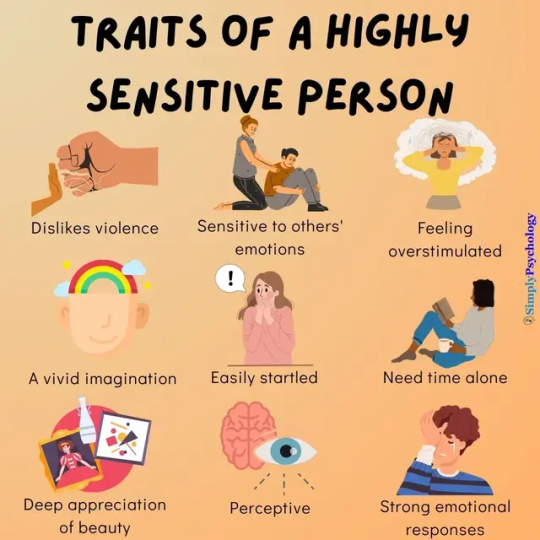
[source]
Mobius's empathy for others, perception of behavior, observation of circumstances, and deep appreciation for beauty (particularly when it comes to the beauty of people) are exceptionally strong.
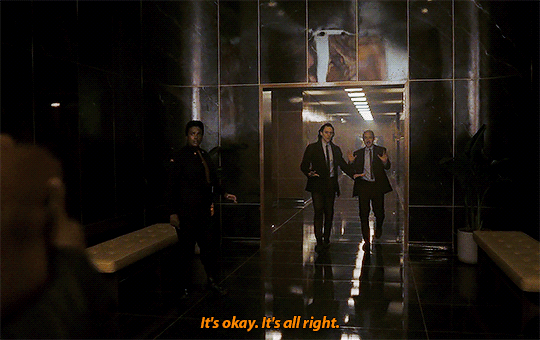
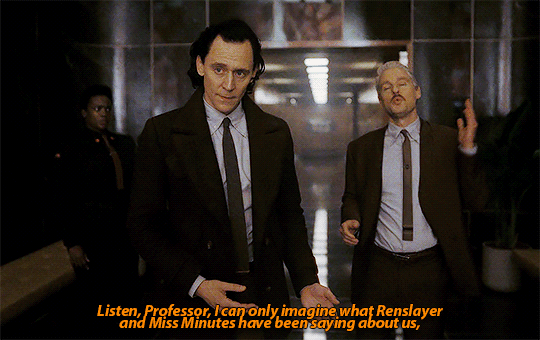

NOTE: Even when the stakes are dire, he's still willing to give Ravonna and Miss Minutes the benefit of the doubt. He really is a sweetie pie. A sweetie pie who can and will slap you if you deserve it.
I think Mobius may mask his strong emotional responses regularly in order to be able function in the TVA. There were only two incidents, when he was unable to suppress his feelings, and those outbursts were remarkable:


That said, Mobius doesn't quite meet the other symptoms of HSP, which include sensitivity to stimuli, being easily startled, and aversion to violence. As we see in the series, Loki's antics don't overwhelm or startle him, and he has no issue with torture when he deems it necessary.
It is possible that Mobius may have Acquired Neurodivergence post-series as a consequence of trauma in the series finale. At present, we have nothing in canon to support this, but many fanfics show Mobius struggling to cope with the loss of Loki, his home, his family, and his identity. This severe level of loss can cause a variety of mental health conditions and disorders that may impact Mobius's future ability to function in a neurotypical way.
SYLVIE - ACQUIRED NEURODIVERGENCE [?]
I've written about Sylvie's sexuality here, and I think some (if not most) of her quirks when it comes social interaction, emotional intimacy, and physical contact may be explained by trauma. As such, I think some of her behavioral symptoms, which can be mistaken as autism, is actually the result of PTSD causing structural changes to her brain. Loki likely has this as well.
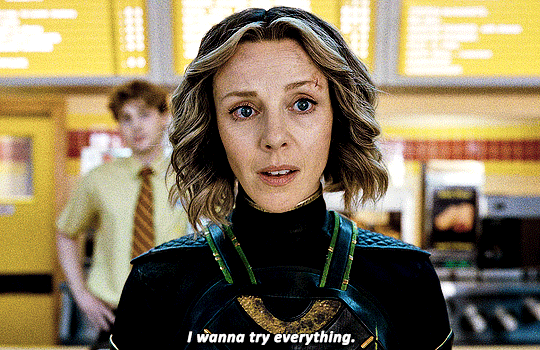
Like O.B., she is verbally blunt and appears to demonstrate lower empathy, especially with those she disagrees with.
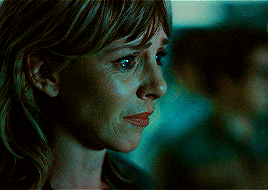
To be clear, this doesn't mean Sylvie doesn't have empathy. She does, as can be seen in the gif above. What I mean is, her empathy and ability to demonstrate it are generally low throughout the series. This is likely a psychological defense mechanism. Having lowered empathy is advantageous if growing up in apocalypses is the only means of survival. Every friend and lover she's ever had is either dead or will die because of those apocalypses or because of who she is to the TVA.
Unlike O.B., Sylvie initiates social interactions and develops friendships more easily. Sylvie has acquaintances, if not friends, in John (McDonalds,) Eric (bartender), and Lyle (record shop). NOTE: You can tell the writer is a man when the bias in creating side characters skews male instead of female. Sylvie should at least have ONE girlfriend in her 1982 timeline, but she doesn't.
OUROBOROS (O.B.) - LEVEL 1 AUTISM [?]
Here he is! Here is our favorite neurodiverse ray of sunshine! Our autistic cinnamon roll! The MVP of season 2!

Now, I have mixed feelings regarding how people on the autism spectrum are portrayed in media. While they are often shown as socially awkward, they are also shown to be exceptionally brilliant in their area(s) of interest. This is quite flattering and often true in real life, yet I worry that this creates a stereotype that not only are all autistic people "geniuses", they are also geniuses in a way that is useful to a capitalistic society. That expectation isn't healthy and perpetuates the belief that a person is only valuable if they are useful. Further, it is a narrow portrayal of the autism spectrum. It is important to have representation across that spectrum instead of stopping at Level 1.
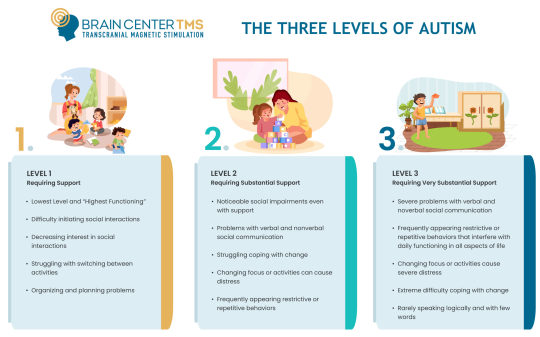
But I don't like being a Debbie Downer, so let's focus on the good representation that can be found in O.B.!
O.B., in a lot of ways, reminds me of Entrapta from She-Ra and the Princesses of Power. He doesn't always read social cues correctly, which often plays out as fantastic comedy relief on screen when the stakes are outrageous.
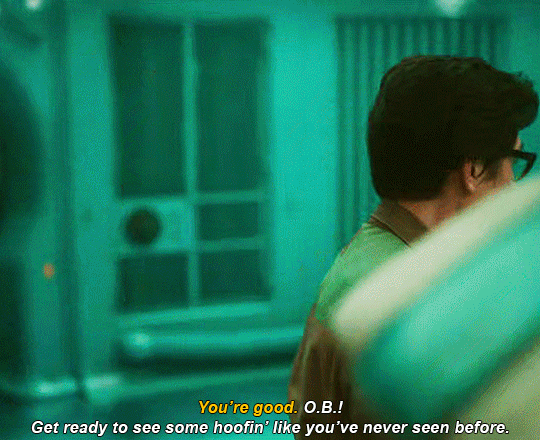
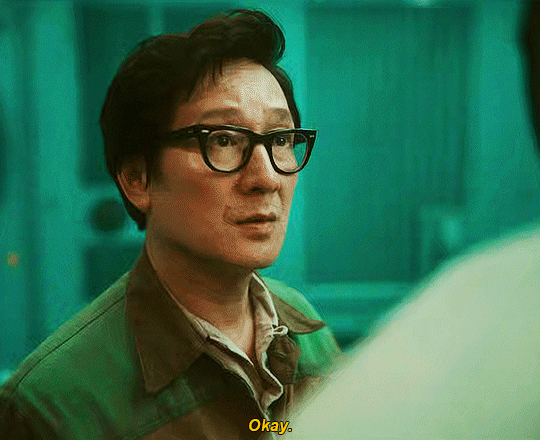
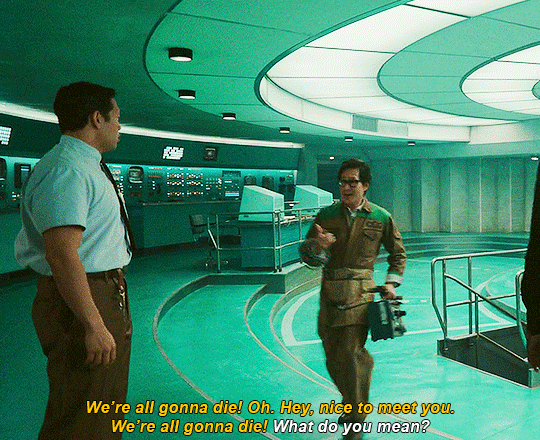
Like Entrapta, his science and engineering aptitude are nearly unmatched if not for Victor Timely. However, the hyperfocus O.B. exhibits does have negative consequences, as exemplified when he explains he lost his job and wife due to dedication in creating a TemPad prototype. Despite these losses, O.B. is resilient and looks forward to what comes next (another possible symptom of his neurodiversity).

I love that O.B.'s neurodiversity allows him to believe Loki when Loki finds him on his branched timeline with his "crazy story". It is also what allows him to see the patterns in Loki's timeslipping and propose, with confidence, that timeslipping can be controlled.
He is also a very good friend. Though he might not be the "huggy" type, he always makes an effort to find concrete solutions to big problems. I would say that O.B. is Loki's second closest friend in the series after Mobius.
I can't tell if it's O.B.'s autism or O.B.'s inner asshole that's fucking around with Loki in this scene. Not once but twice! Either way, I love it (and the fact that Loki resists the temptation to zap him back).

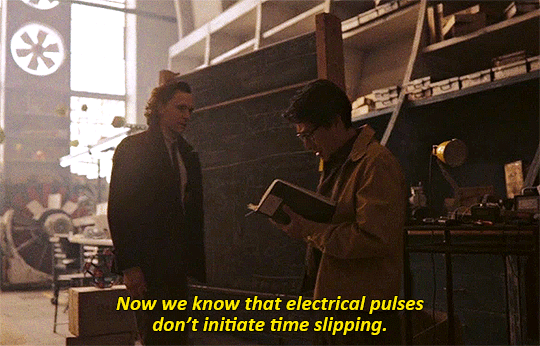
CASEY - LEVEL 1 AUTISIM [?]
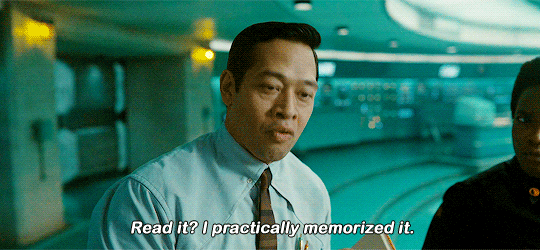
What I appreciate about Casey is that if he is interpreted as autistic, he is not a super genius. He is still quite gifted, but I think he represents where a good number of level 1 autistics actually land in life. I feel this is a much healthier portrayal and balances out O.B.'s genius representation nicely.
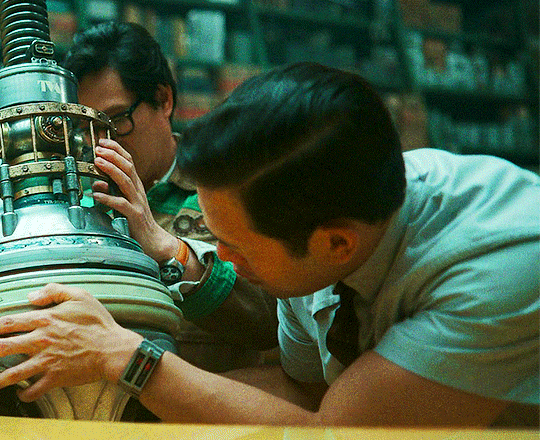
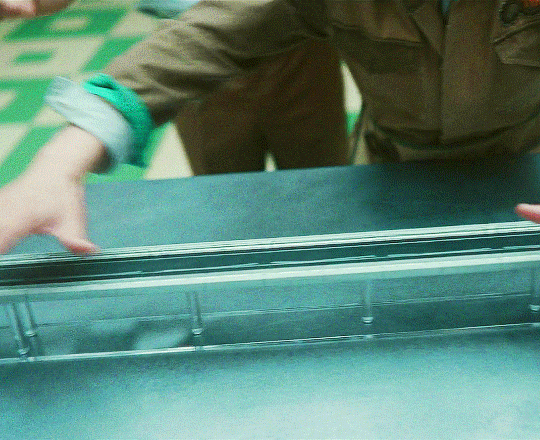
NOTE: Look how cute they are! They must be protected at all costs.
I am also so happy that Casey and O.B. found friendship in each other. We have to give B-15 (Verity) credit for this. The only reason they met at all is because B-15 had the presence of mind to think of Casey to help O.B. with the Loom debacle.

Together, they become unstoppable, but there's one more friend who completes the Science Club Trio ...
VICTOR TIMELY - SPEECH IMPEDIMENT/LEVEL 1 AUTISM [?]
Since I've discussed autism interpretation and representation at length with O.B. and Casey, I'm going to concentrate on the portrayal of Victor Timely's speech impediment.

I also have mixed feelings regarding the media portrayal of people with speech impediments. This medical condition is often used as a means of showing a character is "meek" or "harmless". I don't doubt that this character feature was chosen for that exact purpose, to immediately contrast Timely against HWR in the quickest, most efficient way possible. Unfortunately, this kind of narrative "shortcut" leads to stereotyping people with speech impediments accordingly.
It's a good thing, then, that Loki series takes the time to add some depth to Timely's character. Yes, he has a speech impediment, but he is also very willful, crafty, and brave.
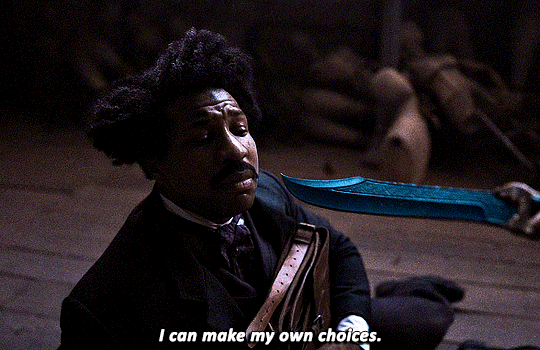
#loki#mobius#lokius#loki series#loki season 2#loki meta#my meta#sylvie#ouroboros#ob#casey#victory timely#hwr#neurodiversity#neurodiverse#neurodiverse representation#speech impediment#loki analysis#my analysis
46 notes
·
View notes
Text
Review of The Autist’s Guide to the Galaxy by Clara Törnvall

In The Autist’s Guide to the Galaxy, Clara Törnvall flips the script on neurodiversity by shifting the focus from autism to neurotypical behavior, all viewed through her own autistic perspective. Instead of analyzing autism, which is more common, Törnvall examines the quirks and behaviors of non-autistic people. The book is clearly aimed at autistic teens and their families, written in a way that’s easy to follow, though it feels more suitable for a younger audience.
The book’s concept is promising, but it stumbles in a few big ways that hold it back from being the insightful guide it sets out to be. Törnvall’s take often lacks depth, her humor feels a bit forced, and the book just doesn’t dig deep enough to offer meaningful insights on the differences between autistic and neurotypical folks.
Cool Concept, But It Falls Short
The idea of analyzing neurotypical people from an autistic point of view is fresh and, honestly, pretty exciting. By flipping the usual roles, Törnvall lets autistic readers see the quirks of neurotypical behavior in a new light. This could have been a powerful way to challenge the “normal” vs. “different” divide and encourage a new kind of understanding.
But, pretty quickly, the book starts leaning on oversimplifications and stereotypes. Neurotypicals are portrayed as obsessed with social conventions, shallow, and rigid. Sure, this might be intended as a playful twist on how autistic individuals are often stereotyped, but it ends up flattening the complexity of neurotypical behavior in a way that’s not super helpful. Instead of opening doors to new insights, it just reinforces old clichés.
No Real Scientific Foundation
One of the biggest downers here is the lack of solid research. Törnvall mainly shares her personal take and experiences, but there’s barely any reference to scientific studies or theories that could back up her points. This makes it feel like the book doesn’t really go beyond her own perspective, which limits its appeal—especially for readers hoping for a deeper dive into neurodiversity.
With so much research on neurodiversity out there now, it’s a letdown that The Autist’s Guide to the Galaxy doesn’t bring in some of those findings to give more weight to its ideas. By sticking to personal anecdotes without a broader context, the book misses a chance to provide readers with the fuller picture they might be looking for.
Humor That Misses the Mark
Törnvall tries to use humor and irony when describing neurotypical behavior, but often it feels off-key. She paints neurotypicals as people who blindly follow social rules without much thought, which, while funny at times, can feel a bit condescending. For neurotypicals who do care about meaningful relationships and self-reflection, this portrayal feels one-sided and kind of misses the mark.
A little humor can go a long way in sparking tough conversations, but here it mostly feels divisive. Neurotypicals who pick up this book to understand autism might find themselves put off by the caricatured descriptions, which makes it harder for the book to really open a two-way dialogue.
Lack of Balance in Adaptation
One of the key ideas in today’s neurodiversity discussion is mutual adaptation: both autistic and neurotypical people learning to understand and meet each other halfway. In The Autist’s Guide to the Galaxy, though, it feels like all the responsibility is put on the autistic reader. Most of the tips are aimed at helping autistic people understand neurotypicals, with almost no mention of how neurotypicals might benefit from adapting to autistic communication styles.
This one-sided approach feels outdated and reinforces the idea that autistic people need to do all the adjusting, which goes against modern thinking around inclusivity. Real mutual understanding requires both sides to put in the effort, and that’s something the book just doesn’t touch on enough.
A Bit All Over the Place
Another issue is the book’s structure. It jumps from personal stories to practical advice to general observations about neurotypical behavior, but without a clear, connecting thread. The shifting tone—one minute humorous, the next serious—adds to the disjointed feeling, making it tough for readers to stay engaged or grasp a central message.
For a book aiming to be a guide, this lack of structure takes away from its impact. A more organized approach could have made Törnvall’s ideas easier to follow and left readers with a clearer takeaway.
Conclusion: Good Idea, Not really what it should be
The Autist’s Guide to the Galaxy kicks off with a fresh concept but doesn’t quite hit the mark. It lacks the depth, nuance, and balance that could have made it a real asset in the neurodiversity conversation. Instead of bridging the gap between autistic and neurotypical experiences, it relies on stereotypes and puts the burden of adaptation on autistic people alone.
For readers looking for a well-rounded, research-based exploration of neurodiversity, The Autist’s Guide to the Galaxy probably won’t satisfy. While Törnvall’s personal insights are valuable, they don’t dig deep enough to enrich the broader discussion. Ultimately, it’s a book with a strong idea but not quite the execution needed to make it truly impactful.
2 notes
·
View notes
Text
How to Support Your Partner After an Autism Diagnosis
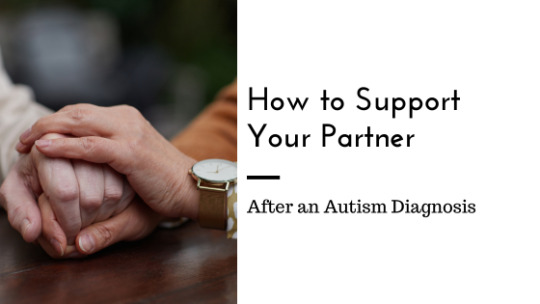
The autism spectrum is a frequently-misunderstood neurodevelopmental condition. The stigma surrounding autism and autistic individuals stems from misconceptions and a lack of awareness. While autism is often diagnosed in childhood since it does affect development, adult autism diagnoses are not uncommon.
This diagnosis can be confusing and upsetting, but it doesn’t mean that there’s anything wrong with your partner or their ability to love. People with autism can be loving partners and friends, just like neurotypical people, and if you’re in a relationship with someone who has autism, there are many things you can do to support them.
What Is Autism?
Autism is a neurodevelopmental disorder that affects how individuals perceive and interact with the world. It is characterized by difficulties in social communication and interaction, as well as restricted and repetitive patterns of behavior, interests, or activities.
Because autism is a lifelong condition, your partner will have been living with it and dealing with it their entire lives. A diagnosis changes nothing about who they are, their emotions, or their capabilities. The diagnosis simply explains some things about how their brain works.
As an adult, an autism diagnosis may be a relief, explaining challenges and certain behavioral patterns that your partner has been dealing with their entire life. Your partner will likely have learned dozens of compensatory or masking behaviors and will likely have had a sense for years that something is “off” about them. An autism diagnosis can help them understand themselves and feel more comfortable advocating for their sensory and emotional needs.
How To Be A Supportive Partner For Your Partner With Autism
Supporting your partner with autism requires clear communication, empathy, and understanding. There are a lot of myths about autism and how it affects relationships. In many ways, supporting a partner with autism is just like supporting any partner. You need to communicate well, and you need to be emotionally available for each other.
Another key element of supporting a partner with autism is creating a supportive and accepting environment at home. Encourage a routine that provides predictability and stability. Offer understanding when your partner may require time alone or engage in repetitive behaviors (often called “stimming���) that help them cope with stress.
Listen To and Believe Your Partner
An adult autism diagnosis can require a considerable amount of time for your partner to process. Your partner may want to talk about things out loud to reach a point of closure for them and understanding for you. Simply listening to your partner as they process their diagnosis can be a vital source of support.
It’s also important to believe your partner. When they talk about how they experience the world or how they’re feeling, believe them. Don’t second-guess their emotions or experiences, and don’t catastrophize or ignore their diagnosis. If you have difficulty accepting their diagnosis, speak to a therapist to help process your feelings.
Build Communication Skills
While autism is a spectrum and every autistic person’s suite of traits is unique, one common thread is a desire for clear communication. Clear communication is helpful for any relationship, but one very common autistic trait is challenges with vague communication. No partner, whether neurotypical or autistic, can read your mind – so don’t expect them to. Communicate clearly about how you’re feeling, and be understanding if your partner wants more information or clarification.
Educate Yourself
It’s likely that your partner has long been researching autism. There is a huge autism community online, and very rarely do adult autism diagnoses come out of the blue. It’s likely that your partner sought a diagnosis after speaking with other autistic people and researching the condition.
Ask your partner what resources they’ve found and like, and read them yourself. Look for resources created by people with autism– groups like the Autistic Self-Advocacy Network, or ASAN, are great places to start.
Support Their Unmasking
This is one of the most important ways you can support your partner with autism. “Masking” is the term for how autistic people learn to hide their autistic traits to appear “normal” or blend in. This is frequently emotionally exhausting.
By creating a safe space for your partner with autism to drop the facade and be themselves, you are showing them how much you can be trusted and how much you truly love them. You don’t have to do anything special– if your partner starts rocking or stimming in front of you, it’s a sign that they feel safe and supported within the relationship.
Seek Professional Support
An autism diagnosis provides your partner and you with a lot of new information. Therapy or counseling can help you through any challenges or emotional difficulties related to their autism diagnosis. A mental health professional can provide strategies for managing anxiety, improving communication skills, and enhancing overall well-being.
If you are working through the challenges and changes of an autism diagnosis with your partner, please do not hesitate to reach out to us today at Love Heal Grow.
3 notes
·
View notes
Note
neurotypical people be normal about mental disorders challenge (this is about the asylum au)
Gonna be frank even if the OP of the au or anyone defending it is indeed neurodivergent, their experiences are far from universal. As somebody who has had friends be put into mental institutions for a plethora of reasons, trying to depict what is clearly nothing more than an angst-bait AU as a 'comedic' one is so. Tonedeaf??? Where's the humor in somebody clearly having an episode being restrained and depicted as 'wROW isN'T he being SOOOOO irrational'???
I'm noticing some big artists in the community defend it but it's so clear they're only doing it because they're friends with OP of the AU... It's just disappointing! It's 2023. There are so many genuinely non-offensive ways to joke about mental health or even make it comedic.
This post goes more into depth on why such AUs are not only offensive but even outdated & not accurate in its depictions. But my two cents is that, from a writer's perspective, what is there to do with these AU's. Like, okay, your main character is in a mental institution, now what? How many jokes can you make about delusions or interactions with the staff you can have before it gets boring and/or needs to conclude given that the AU revolves around this one place and concept? Huh???
Boring, ableist ass genre of AU's. I know the PT fandom is technically stagnating in popularity but I wasn't expecting stupid 'grasping for popularity' AUs until 2024, boy does fandom work fast.
#kirm rambles ✨#probably the last time i'll address this unless some genuine crazy bullshit happens but#I hope the big artists defending this to hell and back with passive comments such as 'IT'S JUST AN AU!!! IT'S JUST A JOKE'#fix their priorities. why are you dying on the boring au hill#is it so your aus can interact with this one??? why do you want to interact with a genuinely distressed patient so bad huh
3 notes
·
View notes
Text
When all the right conditional factors came together at all the wrong times, the perfect neurodevelopmental storm was created. As many of you know, a lengthy series of comprehensive developmental evaluations recently confirmed our sweet Finn with a suspected diagnosis of autism spectrum disorder last month. Currently, his evaluation report indicates Level 1 functioning for communication and 2 function level for behaviors. Around 15 months or so, Finn began to experience speech regression. He talked almost as early as we walked (and we were running by 11 months, LOL) and using several words consistently like “ball” and “dog.”
Surely, we’ve all heard that God has a sense of humor. Well, the one area of mental health I haven’t had the opportunity to have direct clinical experience in is in the field of ABA. Applied Behavioral Analysis. I’m learning so many things, of course. I’m trying so hard to learn all the things I possibly can! All the things to help myself, to help Finnley, but also to gain this important knowledge and these meaningful skills so that I may perhaps also help others and their loved ones also struggling on the spectrum. I’m learning a phrase "autism: different, not less.” This dramatic phrase emphasizes that autistic individuals are unique, possessing many individual strengths, but also acknowledging that their experiences and perspectives may differ from neurotypical individuals. However, this doesn't diminish their value or abilities.
Sadly, what it does diminish is their life expectancy. Longitudinal studies that followed people with Autism for over 20 years found that the average life expectancy ranges between 39 years and 58 years. This means the average lifespan for these folks, for our sweet Finn, is nearly 20 years less than that of an average healthy adult. I WANT TO CHANGE THIS!!!!!! As Most of you also know I am currently pursuing my own advanced degree in mental health as a FT NP student. I instantly knew Finn’s regressive language development to be a huge concern, a major warning sign to continue to closely monitor. As we recently began nearing Travis’ graduation these past few months, Finnley’s services and therapy appointments were only increasing to offer him the additional recommended support that he was clearly, desperately needing.
With Finn’s limited coping abilities at this time, you may now be at the stage of understanding as to where my Clooney’s 2000’s, real-life based Perfect Storm movie reference is coming from. I’m learning autism truly is a spectrum. I have a feeling another quarter century from now, God willing I be so blessed to still be living earthside 2050 that I may have a love/hate relationship with the word “spectrum.” For context I am being silly, however, that doesn’t make it any less true. And please allow me to emphasize how much I pray I have learned by then. How much more aware and informed I am. How much more educated I am. Also, how much support I hope my Finn has been given by then.
I have said this to a few of those closest to me professionally but seriously. I’m going to go ahead and announce this publicly, too. Mark my words: in 2050, bet my sweet you know what ABA the approved, medically necessary treatment for ADHD as well. What I really mean is, it will be the gold standard intervention that most insurances will pay for. BUT. This isn’t about that. However though, while we’re on the subject, did you know that ADHD also lowers one’s lifespan by an average of 7 years, depending on gender? To just think in 2050, Finnley Wayne would be 27, going on 28 himself. The same age I was when my dad passed.
The challenges, the abilities, the functionality, the deficits, the level of support required… It’s all on a spectrum. Some kiddos/adults may be non-verbal while others, like the “Good Doctor,” have exceptional abilities in specific areas. While "The Good Doctor" is a fictional medical drama TV series, it draws upon inspiration from real-life chance discoveries and medical experiences, aiming for authenticity in portraying autism and the medical world. The show, which ran for 5 seasons starring Freddie Highmore as Shaun Murphy: a socially awkward, sensory sensitive surgical resident with savant syndrome and ASD (autism), is a fictionalized account.
While not based on a single true story, those associated with Good Doctor including many actors yes, of course, but many others too, they have all emphasized the importance of portraying autism authentically. Good Doctor aims to be fairly accurate when it comes to medical jargon, diagnoses, and treatments.
The show's creators, directors and producers have shared that the story was largely inspired by a courageous 5-year-old Washington State kiddo who underwent a routine teeth cleaning that led to the discovery of a cancerous tumor. Please allow my nurse brain to “geek out” for a minute. Over ninety percent of Autism is linked to inherited genetic mutations. Having a sibling with Autism is the single most significant risk factor for developing autism. Additional significant increased risk factors for the development of autism include an older paternal age (dad’s 35+). Children of mothers living near a freeway, and traffic-related pollution, during the third trimester of pregnancy were twice as likely to develop ASD. Children of mothers with proteins, i.e. antibodies to fight infection, may interfere with their children’s brain development, possibly leading to autism.
As all of you likely know, contrasting to my previous experiences with Roman and Adrhianna, entirely different human versions of this younger Chelsea in her not just more youthful but also healthier bodies. Chelsea, as a 19-year-old freshman-undergraduate-nursing-student-self with Adrhi, and the eager-beaver-22-year-old soon-to-be new-nurse Chelsea with Roman. I had quite a complicated pregnancy and delivery with our sweet Finnley. These complications (in addition to Finnley’s male sex), unfortunately composed quite the laundry list. Before my pregnancy was confirmed around 3-5 weeks, my PCP was working me up for a GI condition. Around 6-8 weeks, after losing well over ten percent of my body weight, barely tipping the scales over 100 lbs., Hyperemesis Gravidarum (HG, essentially severe morning sickness) was diagnosed.
HG, in addition to several episodes of pyelonephritis (kidney infection), way too many episodes of ER and urgent care trips to count for IV medication and fluid until home health was ordered and approved. Retrospection, with 20/20 vision of course, yielded many insights and undiscovered root causes. At that time what neither I nor my providers were aware of was that I was also suffering from an undiagnosed H. Pylori infection that was clearly only complicating all the matters, that had resulted in several, again at the time, unknown thus unhealed peptic ulcers to my stomach and duodenum, the first part of your small intestine.
Our little Finn faced and overcame all the odds before he took hisown first official breath, just as I’ve been told his mama has as well😉 Situations resulting in oxygen deficiency to baby’s brain greatly increase one’s risk for the development of autism. Sadly, our scenario is a perfect example of what I meant by all right conditions at all the wrong times. Poor Finn experienced meconium aspiration syndrome which is where baby inhales their first stool into his or her lung while still in utero leading to additional complications/interventions. During my labor and delivery, we experienced late decelerations and decreased saturations resulting in deep suctioning and CPAP.Thank the Lord, all interventions were successful at bedside and Finn required NO NICU overnights!
To stay in the home with Finnley, allowing him to receive early intervention through our assigned Regional Center as well as speech and occupational therapies, I altered my graduate nursing journey studies permitting myself to primarily pursue the licensure component, pausing the scholarly project component (i.e. the doctoral dissertation) by transferring into a master’s program this past January. This has provided me with deep, deep reflection time. Time that has revealed thoughts that maybe, just maybe, the topic I initially thought I wanted to focus my doctoral studies upon isn’t the topic I may be planning to focus my doctoral studies upon afterall.
What the majority of you don’t know, however, is what I’m about to share next. With the help of a dear sweet soul literally placed into my life by the Lord as there is no other explanation, my Uncle Karl has also been working on Chelsea for quite some time as well. With the help of not just him of course but every single person reading this. As I learned from my own father at a very young age, it takes a village. He instilled in me the importance of community, the vitality of a strong support system. What I am oh so joy-filled to share next is that what I HAVE been able to do, is truly and finally, (because ALL THINGS are possible with Christ), is surrender things to the Lord I have spent many years holding onto. These things… hurt, pain, confusion, profound loss… They had me stuck. Kind of similar to how I’m learning ASD has Finn “stuck” (i.e.. fixating) sometimes in his attempt at effective communication, resulting in severe dysregulation and subsequent self-injurious behavior.
My stuck was different though. I refused to accept God’s timing. All the right factors came together at all the right times; they always have, and they always will. But I was so angry at God. I was angry at Him for what I felt had been my endurance of continued hardships and trauma. Chronic and complex trauma. BUT. God’s been working on Chelsea. He softened her heart after her years of prayers, hard-fought hallelujahs, and “how could you do this to me(s)?!” These WHYYYYYYYYY ME LORD(s)?!?!?! Emphasize the s at the end.
She is finally choosing to open up those beautiful, big brown eyes (as her dad always said), and choose to accept many fundamental truths. God’s always been on time. God’s never failed Chelsea, and He’s not starting now. But Chelsea is CERTAINLY DONE doing all the things her way because she has learned all the hard lessons in her time… after time… after time. She’s done making life harder for herself by continuing to choose her personal pattern of self-destructive choices. She’s done leaning on her own understanding. She’s really, really ready to choose to fully rest, unencumbered, in green meadows so she can more easily drink from peaceful streams. Because: it is well; peace like a river.
She’s leaning into her faith and trusting in His promises, that HE WORKS ALL THINGS FOR HER GOOD, IN HIS TIME. Not in Chelea’s time. In HIS TIME. And I’m saying it out loud finally, sharing it with all of you, to hold my self-accountable. Like I ask others to do. Like I ask my children to do. Because I want to foster the best parts of my dad who is now gone. The calm and caring giant who unfortunately isn’t here anymore to pass down his life lessons to my next generation. To our next generation.
Chelsea will choose to intentionally stop, out of spite, unintentionally gatekeeping Victor’s hard-earned wisdom that he is no longer able to directly share with her offspring, my contribution to society. In fact, my generous donations span two whole full generations, but you get my point. It also doesn’t mean Chelsea needs to refuse the blessings God is offering right in front of her in the form of the people he is placing into her life to help her. Another centrality Chelsea has accepted with her newly awakened mind, and widely opened eyes is SHE IS HERE! God keeps waking her up, day after day after day.
And she’s so incredibly, humbly grateful. She’s grateful to Him and she’s grateful TO ALL OF YOU!!! Thank you, friends and family! Thank you for taking the time to read this but more so, thank you for taking the time and energy you have, whether it be 36 years or 6 months of solid investments into my life. Into my children’s lives. Thank you for loving us and supporting us.
A special thanks to a few more people, too. My hubby. Not just for that 1 IV you had to put in that 1 time when all the nurses couldn’t get it! Hehehe. And to my kids, but not just for loving your brother as hard as you love yourselves. To my best friend, of a literal quarter century and counting. NOT just for standing beside this girl through all those pregnancies and life experiences mentioned above, whether it be in-person, waiting outside in the hallway due to her weak stomach or in spirit due to the thousands of miles of separation. To my other best friend of now going on 7 years… you know they say friendships that last 7 years lasts a lifetime, right? It’s officially too late!!! You’re stuck with us!!!!!!!!!!!!!!!! Hehehehe. Thank you for loving the true, authentic me, and my family. And lastly but certainly not of least: thank you, Karl. Thank you for choosing to step into the role of "bonus dad," for me and "bonus gradpa," for my kids.
Thank you, all of you, for loving me enough for helping me in my journey to learn to truly love myself. Thank you, for the continuous outpouring your love, energy and devotion into us, into our lives. WE LOVE you too!!!!!!!!!!!!!!!!!!!! I am choosing to share my very personal story at this time in our lives, during World Autism Awareness month as I pray our story reaches and touches others in a seriously meaningful and impactful way. We want every day to be autism acceptance, and we will put in our time as we diligently prepare for our Autism Speaks Walk this December 30th, 2025, in Orange County, California!
If you’re someone reading this, and you don’t have someone close to you who may experience some of the above struggles I’ve shared, but you’d love to learn more, please consider checking out autismspeaks.org. When you see a stressed mama leaving the park with her “terrible 2 toddler” in full blown temper tantrum mode… Please know, this may not be what it seemingly appears. This may be a 2-year-old toddler who’s also on the spectrum, on top of experiencing normal 2-year-old struggles as he or she is also having a whole heap load of troubles that perhaps you have no idea about.
He or she may not be having a temper tantrum at all. If he or she is anything like our sweet Finn, who is perhaps throwing himself onto the ground and accidentally chips more of his front teeth every time his, despite all your best attempts and efforts and redirections and interventions. Maybe he is throwing toys at me. Maybe he’s throwing toys at YOU! LOL. Sorry, I didn’t’ mean to laugh out loud but I was just thinking how perhaps, it may be a little funny indeed if some of these toys were chucked at the head of someone who is not myself! He or she may be fully engaged in a sensory meltdown.
In the context of Autism Spectrum Disorder (ASD), a sensory meltdown is an intense, involuntary response to overwhelming sensory or emotional input, often manifesting as a loss of control and behaviors like crying, screaming, or physical outbursts, rather than a deliberate attempt to manipulate a situation. Those noises you don’t hear… They’re not just annoying. They’re not just overstimulating. They’re OVERWHELMING. They’re frightening. And these people. And these lights. AHHHHHHH…… WAAAAAYYYYYYY too many people. Waaaaaaayyyyyyyy too bright. He’s now filled with feelings he doesn’t understand, and coping abilities that are so limited or completely unavailable or untapped into at all yet. Meltdowns can be seen as the body's "fight or flight" response to an overwhelming situation, where the person may react physically or emotionally. It may look like shutting down: Some autistic individuals may become completely unresponsive during a meltdown.
You know that small change in your schedule or your routine last Tuesday morning around 10:30 AM? Or maybe you don’t. Because you don’t struggle with difficulties in executive functioning, causing you difficulties and anxieties and challenges with minor disruptions to everyday plans? Or maybe you didn’t… Maybe your planning, your organization, your ability to be flexible and self-regulate your emotions is functioning at at least an average level. Maybe you don’t have these same deficits that impact your routines, your daily tasks and social interactions. Maybe you can’t relate, because maybe you do possess all the needed cognitive, psychological and behavioral skills, the aptitude and the abilities to effectively manage everything and everyone life throws at you on a consistent and unrelenting daily basis.
In the context of ASD, this could look like increased anxiety, stress, and behavioral challenges, as individuals with ASD rely on predictability and structure for a sense of security. Maybe visual support and clear instructions aren’t as vital for your everyday success as food and water are. Maybe checklists or step-by-step instructions to break down tasks into smaller, more manageable chunks aren’t needed for you to successfully complete your daily tasks. Maybe you don’t even consider a social interaction or encounter requiring any formal of verbal or non-verbal communication a “task” to begin with in the first place. BUT, here’s the hard reality, friends. Someone you know does. And they you’re your help.
Will you consider learning more about how to effectively support those in your families, and your communities, with ASD? Instead of living in a society, in a world, with kiddos with ASD being taught how to learn to effectively communicate with adults, how to effectively manage their behaviors in public settings… Will you consider being an adult who learns how to effectively communicate and interact with an individual with ASD living in your society, in your neighborhood, in your community? If nothing changes, nothing changes.
#academia#100 days of productivity#adventure#biology#science#self care#self improvement#self love#girls with tattoo
1 note
·
View note
Text
I think something they don’t tell you (as an austistic, adhd, or human living in 2024) is that when they say the solution to dating/making friends/having a social life is to “find a hobby,” they’re speaking in neurotypical code.
They aren’t talking about developing a Special Interest, they’re talking about doing Activities. In this case, “hobby” is sort of the equivalent of “small talk” with regards to a Social Life.
That advice has been so unhelpful and frustrating because I DO have passions and interests outside of work, but those passions and interests and personal projects have not just magically attracted people to me. If anything, I find it much harder to enter Social Spaces at an introductory level, which then excludes me from developing into those tighter-knit exclusive communities revolving around the subjects I enjoy. Worse even, entering introductory spaces (because these are the only available entry points) and being ostracized for having too many skills and too much knowledge (things we believe are the innate prerequisites to a “hobby”).
Idk the answer to these things because these are the deficits that define my individual Support Needs. Right now I’m at a point where just being perceived in public is a novel skill I’ve lost. Spaces where I’m more comfortable/knowledgeable feel safer just in case I have to socialize (rather than assuming the responsibility of “being part of the social institution” and ultimately disappointed when I’m not immediately included).
That said, if you are a neurotypical person who does view hobbies as something more “exploratory” and you spy some outliers in the group, I encourage you to engage! Folks like me aren’t trying to “show you up.” We’re not “judging you for not knowing what you’re doing.” In fact, we came to participate BECAUSE we thought being skilled/knowledgeable would HELP us connect to you. We would actually probably love to help teach you, talk you through the research we’ve already done. We would love to go on the journey with you (if we didn’t, we would just stay home and watch another YouTube video).
Same goes with facilitators, hosts, instructors, and coordinators. I promise I’m not challenging your authority coming to a “beginners” class. I promise you I wouldn’t feel “taken advantage of” or “singled out” if you acknowledged my skills. This may not be universal, but I wouldn’t mind if treated me like an honorary assistant and invited me back specifically to help set up or even just serve as an “audience plant.” I wouldn’t be embarrassed if you took me aside and said “you might enjoy our Monday class better— there are more folks who have been around the block and come more regularly.”
Clearly this is just another extension of the Double Empathy Problem. So for people like me, GO OUT AND DO SHIT IN PUBLIC (and be kind to the babies who are nervous to try new things— they could use a hand). And the to neurotypicals: be kind to the weirdos who are actually there to take the activities seriously— they could use a hand being perceived.
We are all adults living in an anti-community dystopia. We all have (much easier) options to stay inside and watch YouTube. So let’s all just suck it up and be friends?????
1 note
·
View note
Text
also, since i’m rambling on tumblr a little bit i’m gonna continue to talk about thoughts and shit.
it’s kinda surprising to me how little i care about my comm class suddenly. it’s a requirement so that doesn’t help, but i also didn’t know that when signing up and it doesn’t really influence my lack of care.
i’m also surprised because my professor is genuinely really nice. i have some grief with her (which i will get into) but she’s like, genuinely very nice. she’s caring, and she clearly likes what she’s teaching. she dedicates a lot of energy to her teaching and her students.
but despite that, there’s a lot that feels… meh to me about this class.
firstly, my peers give even less of a shit than i do. like, our class is not active at all. it’s partly due to the class being required so many people just don’t care and partly due to the class being at 9 am, but the vibe of the class is kinda unnerving for me in a way that’s hard to describe. even the professor often comments about how quiet we are.
i also feel really bad for my professor due to how distant my class is. she genuinely cares about us and the topic and isn’t getting that reception. i remember i had to ask if i could do my first speech at the last day availible because i wasn’t able to work on it earlier, i had an essay to finish that was more pressing. and she replied that she gets it, a lot of kids put her class at the end of their priorities (and added its probably bc comm is required). and i felt so bad in that moment, firstly because her class isn’t at the back of my priorities at all (i just hadn’t gotten started because my mental health crashed for two weeks and that put me behind on work; the essay i worked on instead was a week late when i got it in because of that crash) and secondly because like holy shit that’s so sad to hear, especially with how much care she gives to us and to her job.
and i know i’m part of the problem, since i have fallen more into the “doesn’t give a shit anymore” crowd. wouldn’t be fair to hide that. but also, i really do feel like she deserves better. it’s not fun for anyone involved when our class is completely dead. it also worsens my lack of active present-ness in class because i end up feeling awkward as the one guy speaking up a bunch, so i shy away a little bit.
secondly, i don’t like the material of our class in a… very strange way. see, my textbook is actually insanely inclusive. it’s mindful of and highlights how different cultures communicate, puts effort into not being extremely eurocentric, addresses race and being respectful of that, and addresses a lot of topics relating to inclusivity. hell, there was an entire section about trans people and on several occasions queer people have also come up to challenge heteronormative beliefs. aroace people are never addressed (which i was looking for in the romance chapter out of curiosity and because i am aroace myself) but i kind of expected that anyway because aro/ace invisibility what’s new.
but it’s baffling to me that, despite how otherwise inclusive the book is, neurodivergent people are never brought up. neurodivergency can often impact the ways people communicate (it does for me at the very least) and i think it should be important to at the very least note that neurodivergent people exist.
i’ve often felt very isolated in class because of my neurodivergency making a lot of what we talk about more difficult for me. nonverbal communication was a strange unit for me because everyone had a much better read on stuff like body language than i did. and it’s so odd to me that the book can be so inclusive while also being focused exclusively on neurotypical people.
lastly, i think my professor is doing… not the best job at teaching us. not because she’s a bad professor, because she’s not. the issue is she’s extremely light on us. in some cases it’s extremely helpful, for example we all need to pass two speeches to get credit for the course and she’s letting people redo speeches if we get below a certain grade (either if you fail it or get a c or below). but sometimes she is way too coddling.
we have to do an interpersonal theatre paper. it was first a film paper, but she made it a theatre paper bc students often don’t turn it in. making it a theatre paper would base the essay off of our school play, which we got free tickets to watch, and the professor said we could work together on it. which is fair, and i appreciate the consideration!
but by working on it, i mean doing a lot of it in class. fine, but sometimes its a little much. i’m talking about figuring out the headers within the paper, structuring the paper together, gathering topic ideas all together, like a lot of the work is being taken out. which is still fine i suppose, maybe i’m just an overachiever by being bothered.
except one of the things the professor did is literally write an introduction for us, give permission to literally copy and paste it, and said it can count as one of our two sources. the theatre show counts as a source too. that’s WAY too much coddling for me, hell no. at that point, might as well write the whole damn essay for us.
i talked about it with my dad on the way home from therapy this week and he brought up that the help being offered is still way too much but it’s good for kids that really are just there for the requirement; it’s a case of “you get what you give”. it’s an easy a, after all. and he’s right, but this is both a literal college class and also retracting from a lot of the skills being practiced in this essay. i’m biased in being frustrated, after all i’m a writer (i hope), but i still think it’s a little excessive how much easier the essay is being made to be.
essay tangent aside, the professor is often very light when it comes to stuff in class in general. i cherrypicked an extreme case, but there’s still a lot of smaller instances of this same coddling. and i get it. she genuinely wants the best for her students. she wants everyone to succeed, she wants to accomodate for everyone and she genuinely cares about us. that is invaluable in a professor. but you can still be flexible and work with students in a way that’ll help them succeed, but also not make class into a walk in the park. while i appreciate what she’s doing, i think she’s leaning too far into being lenient, to the point where it’s detrimental.
though in fairness, an easy professor like her is something many students want. i’m just not one of those people.
i’ve been noticing that, across the course of the semester, i’ve become less and less inclined to speak and be active in class. honestly, i’ve been getting shyer too, i don’t like participating. and every time i wonder to myself “huh, guess i’m just having a day.” only to go to my english class directly after and be extremely active and talkative and present.
and as someone whos default in classes is to be someone very present and active in class, it’s… not a good sign that i’m acting so differently in my comm class.
#long post#rant post#shar rambles for way too long#i WANT to care more about comm but god the class makes it hard#also this is badly written because i don’t care enough to edit my rant about my comm class#and it is both late for me right now and also i got hit by an insomnia blast last night and barely slept#so i cannot be bothered to make this actually good
1 note
·
View note
Text
Autistic shut downs are super weird.
My life has never been so busy. Thesis level busy. Functionally scattered. Today was fkd. Running from meetings at placement to counselling clients to supervision to a group presentation with real industry clients for a university group project. We had to pitch our ideas (designing a therapeutic program for a real school). Our group has been under pressure, had member conflicts, dramas, we've been rushed. And I've had to take a leadership role through a lack of group structure, which is challenging for me but good growth. Also frustrating when juggling challenging group dynamics and some members not pulling their weight. Initiating tasks, prompting, structuring, communicating, it's exhausting. Most of the group have their shit together at least now. But holy shit I'm so ready to be done with academia, with volunteer placement, and disability work which isn't secure work. My goal is just do the one thing and earn enough to just never have to survive again. Be financially secure that we're not stressed, trapped, worried and unable to afford necessities.
So I crashed hard when I got home. My brain was so confused, I couldn't think clearly, I was teary, I couldn't speak clearly. I had to watch comfort shows and fall asleep to them to regulate the tension in my body.
This choice I've made, is challenging work.
All the while my cars breaking down, our finances are breaking down, my partners MH also breaking down, I'm barely keeping up cleaning/cooking at home now.
Can't keep up with the neurotypical world.
I've learned so much though, about my resilience, my problem-solving, my capacity to keep learning and connecting to others in deeper ways. Trust and letting go. Grief and trauma aren't as triggering anymore through the forced self-development of this course. It's forced me to be a better human. And set better boundaries and be accountable and connected to community.
But as to free time, free thought, leisure, what is that. That's such a luxury. This last academic push is brief. It's ok. It's gonna be ok.
1 note
·
View note
Text
watching community for the first time and every time abed is on screen i am filled with so much joy.
as an autistic person i so rarely see myself represented on screen. i knew about the background of abed’s character before, how he was written by dan harmon who found out he was autistic because of writing his character. but i didn’t expect to feel so seen.
usually i have to seek out autistic rep, like when i watched heartbreak high after seeing clips and analysis of their autistic character quinni (who was also amazing rep and made me feel seen). i have to seek it out so i know what to avoid, like the good doctor or pretty much any autistic character popular amongst allistics who think autism speaks is a good organization. so many characters i’ve seen lauded as good autistic rep have been hurtful, stereotypical, or just don’t represent my experiences, even if they are good representation. in a sitcom, especially from the era of community, i don’t expect to see good representation. i expect to see characters like sheldon cooper, who are autistic-coded in a way meant to mock autistic people and reinforce stereotypes, and who feel foreign to me.
but abed? holy shit, i was not expecting to almost cry about him when i first saw him. he is so clearly and unapologetically autistic in a way i wish i could be. he’s blunt, he doesn’t always get jokes, he’s awkward, and he’s so much like me. the way he observes others and picks up their mannerisms in ways allistics can’t comprehend is so relatable. the way he runs through different scenarios to learn how to act and react is exactly what i do before pretty much any social interaction. and the way he relates everything back to his special interests? i’ve never seen that side of autism represented on screen. i do that so much, and for so long i thought i was just rude or weird, when in fact i was just autistic and that’s how i relate to and understand the world. abed sees the world through his autism. it impacts every aspect of his character.
(also his special interest in inspector spacetime is literally me with my special interest in doctor who)
he’s also not the typical savant we see in media! i’m so tired of those depictions, since they make me feel like a failure. i failed most of my classes because of i’m autistic. i can’t handle all the homework or exams, and i can’t analyse things in a neurotypical way which often means allistics give me lower marks. but even though i’m not academically gifted, i’m still smart, and some of that is because i’m autistic. i’m really good at logical analysis, at music, and i know so much about my special interests. and it’s the same thing with abed! he’s not some academic genius who was a child prodigy and aces every class. but, like me and the other autistic people i know, he’s smart in other ways. he’s good at analysing people, at filmmaking, and is also super knowledgeable about his special interests. his value goes beyond his intelligence, unlike so many savant caricatures who are only used as human supercomputers.
i also love the way he interacts with the other characters. they’re all weird in their own way, and abed doesn’t stick out. sure, he’s awkward and sometimes says the wrong thing, but he’s not devalued for that. i don’t like how he’s sometimes mocked for autistic traits, but luckily it’s few and far between and not triggering like other media has been for me. the other characters also stand up for him, like jeff getting into a fight during the christmas ep in season one, instead of laughing along. he’s also not treated like some poor child in need of saving by the allistics. autistic people are so frequently infantilized, and most media only encourages that. they also directly challenge that notion in the show, with the other characters worrying about abed’s sex life only for it to be revealed that abed fucks.
his friendship (or romance) with troy is especially great. as an autistic person, i’m so tired of being expected to change so that people like me. because people do like me, autistic traits and all. a real friend, like troy, will listen to your infodumps. they’ll engage with your interests, and they’ll support you even when you have less socially acceptable traits, like a fear of change. they get to be super nerdy and weird and they don’t judge each other, because they’re being nerdy and weird together. like abed, i found it really hard to make friends, and i still only have a small group of friends, but i prefer it that way. the group wouldn’t be the same in his absence, because he brings value as a character.
i appreciate abed’s awkwardness, the way he doesn’t dampen his autistic traits for the comfort of others. he doesn’t have some “character growth” arc where he learns to be more allistic. his autism isn’t a character flaw, it’s just another aspect of who he is.
i also think it’s important to note that abed being arabic and muslim breaks stereotypes about autistic people. it is only recently that our wider society has begun discussing the lack of diversity in autism representation and it’s impacts. most autistic characters are cishet white men. this is based in the notion that the majority of autistic people are cishet white men, which comes from the history of only testing on cishet white boys and creating the diagnostic tools based on them. autism can present differently outside of that group, and it also creates bias in diagnosis. even though abed is still a cis man, being a poc breaks down the stereotype of white men being the only ones with autism. he also offers representation to a wider group of people, even now. while i’ve seen a bit more rep for autistic white women, the rep for autistic poc (especially woc) remains fairly nonexistent.
on the topic of canon, i personally think abed is canonically autistic. it’s referenced a couple of times in the show, though it isn’t directly confirmed or denied. but considering dan harmon’s story, i think it’s clear that the autistic-coding is intentional. a character doesn’t have to outright say the words “i am autistic” for it to be canon. he has so many autistic traits that it is undeniable, and with dan harmon writing him i think it’s safe to say that he’s canonically autistic. keep in mind that this is my personal opinion and that other autistic people may have other opinions, all of which are valid. the debate of canon is complicated and everyone has different definitions.
i wish there were more characters like abed. characters who are impacted by being autistic yet exist beyond that. characters who speak to an autistic audience, who are written by autistic people. autistic characters who are diverse, who are likeable, who are smart, who are capable.
seeing abed made me so emotional. i want more autistic characters who make me feel seen. i want more autistic characters who make me feel human.
27 notes
·
View notes
Note
Hi Luta!
Went through your reviews for LITA again bc, the show might’ve just ended but I’m already missing it, lol. But more importantly I saw that little tidbit you said on a correlation btw ADHD when u we’re explaining how subs work… and I gotta know more 👀…I honestly have like so many questions, but I wanna wait till I hear what you say first so, please tell??
🐈⬛ (Also, love the emoji choice, though I feel very seen… also how??)
Hey Hey 🐈!!!
There’s been an ongoing conversation about the overlap between BDSM and neurodivergent. There are a lot of studies that are still up in the air, but it's not a surprise to those in the lifestyle. For many of us, it's a healthy outlet for those of us who think differently.
To better grasp the concept of what I'm trying to explain. What is a neurodivergent? A neurotypical person has a brain that social majority says works in the ways that society expects them to. They go about their day with no real challenges, no overload, and no mental breaks because society was set up specifically with them in mind. A neurodivergent person, however, has a brain that works differently and, as the neurotypical folks make up a majority of the world, may struggle with certain aspects of life based on their ability to adapt to expectations.
Neurodiversity is at the core of the BDSM culture, and kink communities draw in many neurodivergent people for varying reasons. One of them being social skills. Social skills are essential to the BDSM community because without it, there is no trust. You'd think this would be a struggle for the neurodivergent but you'd be wrong. The rules for engagement are clearly and explicitly laid out in BDSM guidelines, which means that folk with supposed social deficits have clear guidelines as to how to interact.
Most neurodivergents don't like to be touched or do like to touch but don't know when to. The BDSM culture has rules for this, too. The respect for bodily autonomy is built into the guidelines. Therefore, everyone knows when to proceed, when not to, and how to even ask. You’re not supposed to touch anybody without their enthusiastic and explicit consent. When you do engage with someone, it is first talked about with an exploration of what is and isn’t okay to do and how it is going to be done.
Alongside all that is the fact that there are many pathways. For those that need black and white, it's there. For those of us who need stimulation of more than one brain wave, you'll find that there are allowances for this as well. Not to mention all the sensory play and stimulation.
In essence, we've carved out our own safe space in a world that doesn't fit us. 💜💜💜
78 notes
·
View notes
Text
Creating a Supportive Environment for Children with Autism to Thrive
Autism Spectrum Disorder (ASD) affects millions of children worldwide, impacting their communication, behavior, and social interaction. Helping children with autism thrive daily requires creating a supportive environment that meets their unique needs. This article will explore practical ways to create a supportive environment for children with autism.
Understand their perspective
Children with autism may perceive the world differently than neurotypical children. They may be hypersensitive to certain stimuli, have difficulty understanding social cues, or struggle with abstract concepts like time. Understanding their perspective is key to creating a supportive environment. Take the time to observe their behavior and identify triggers or stressors. Try to see the world through their eyes and adjust the environment accordingly.
Create a sensory-friendly space.
Sensory processing issues are common among children with autism. Creating a sensory-friendly space can help them regulate their nervous system and reduce anxiety. Consider using dimmer lights, soft music, and calming scents to create a relaxing environment. Providing sensory items like weighted blankets, fidget toys, or noise-canceling headphones can also be helpful.
Establish a predictable routine.
Children with autism thrive on structure and routine. Establishing a predictable routine can help them feel more secure and reduce anxiety. Try to set a consistent schedule for waking up, going to bed, mealtimes, and other daily activities. Keeping a visual schedule of the day's events can also be helpful for children with autism.
Communicate clearly and visually.
Many children with autism have difficulty communicating and expressing their needs and desires. Communicating clearly and visually can help them understand what is expected of them and express themselves. Use simple language, repetition, and visual aids such as pictures or diagrams to help them understand expectations.
Encourage play and social interaction.
Play is essential to childhood and helps children develop social skills, creativity, and problem-solving abilities. Children with autism often struggle with imaginative play and may prefer repetitive or solitary activities. Encouraging play by providing opportunities for social interaction and introducing new toys and games can help them develop these important skills.
Use positive reinforcement
Positive reinforcement is a powerful tool for encouraging desirable behavior in children with autism. This involves rewarding good behavior with praise, attention, or other rewards. Be specific about what behavior you reinforce and use immediate feedback to help them understand what they did well.
Seek professional support
Raising a child with autism can be challenging, and it is essential to seek professional support. A team of professionals, including doctors, therapists, and educators, can provide valuable guidance and support for your child's development and behavior. They can also provide resources and strategies for managing specific challenges associated with autism.
In conclusion, creating a supportive environment for children with autism to thrive requires understanding their perspective, creating a sensory-friendly space, establishing a predictable routine, communicating clearly and visually, encouraging play and social interaction, using positive reinforcement, and seeking professional support. Remember that every child with autism is unique, and finding the right strategies and support may take time and experimentation. With patience, understanding, and a commitment to meeting their unique needs, you can help your child with autism reach their full potential.
4 notes
·
View notes
Note
Do you ever feel like sometimes the autistic community forgets or outright excludes severely/mentally impaired autistic people? Obviously I don't mean every autistic person does this but I see some absolutely awful things said by other autistic people. On Facebook I've seen two different posts in the past few days about someone they're not like the "nonverbal potato" autistic people and someone else saying not all autistic people are stupid. It sucks bc a mentally impaired autistic person can't necessarily comprehend and explain their needs as a mentally impaired autistic person and to see other autistic people deny their worth based on being "smarter" than mentally impaired people is awful. I also hate it when someone says autistic people deserve to be proud and open bc they have higher IQs and can be better at math/science/art than neurotypical because when someone says that they're not just saying they're better than neurotypicals they're also saying they're better than autistic people with low IQs who may have severe struggles with math and science and never make complex art. Idk like autism advocacy and pride should be rooted in the fact were people, and not how much smarter or better we can be than neurotypicals.
Part 2. It also bugs me for these same reasons when people say autistic people are the next evolutionary step and will run the world bc not all of us will and that's okay. We're not any less deserving of love, care, and advocacy if we can't be considered superior or able to run the world. Also don't like when people deny or cover up the more challenging symptoms of autism. Like when someone will avoid or lie about how autistic people can struggle with aggression and self injury. If you can't advocate for autistic people without presenting a scrubbed clean version of what autism is, then you're ableist. I saw an autistic woman claim autistic children never struggle with aggression or self injury and if they did then they clearly had PTSD. This is absolutely false and it breaks my heart that people feel like autistic people can't be accepted or proud unless they are palatable. In addition, aggression and self injury can be dangerous and it's important to acknowledge and make sure children who struggle with it can be safe and cared for and learn methods for coping. You can't do this for autistic children if you deny their struggles are related to their autism and insist the symptoms doesn't exist and if it does, must be something else.
I've seen this too. Like claiming it isn't a disability (sorry, but doing that makes it look like the person sees disability as a bad thing). And although autism isn't a mental illness, I've seen posts say it in a way that kinds feels like it throws people with mental illnesses under the bus
Though it's an extreme minority, I think the ones that bother me most are the ones that claim we don't need help. When they claim we need more understanding, but then argue against any way people may try and help us, or get immediately aggressive when a neurotypical person tries to understand which things are ableist and which arent
I'd say most of the autistic community is great, but there's a minority which are quite vocal that bother me
138 notes
·
View notes